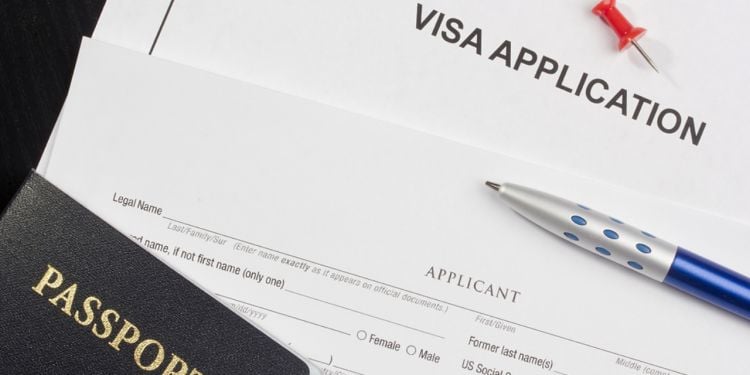
If you're a foreigner looking to study in Canada, you need to obtain a study permit. Expat.com provides details on the procedures in this article.
A study permit enables you to remain in Canada for a general, theoretical, or professional training program. If you plan to join a university, college, or any educational institution authorized by a provincial or territorial government for international students, you'll require a study permit. The majority of foreign nationals must secure this permit before coming to Canada. Before applying for the permit, it's essential to be accepted into a study program, and the educational institution must be listed among Canada's designated institutions.
Please note:
Your study permit is not a visa. It does not allow you to enter Canada.
Additionally, you might require a visitor's visa or an Electronic Travel Authorization (ETA). If your application is successful, this document will be issued along with your study permit. It's important to note that a study permit is not necessary if your program of study or academic exchange in Canada is less than 6 months. Nonetheless, you'll still need a valid travel document, such as an ETA or a visitor's visa, to enter Canada. For further details on visitor visas for students, refer to this page.
Good to know:
Residents of specific countries, like India, Morocco, Senegal, or China, may have the option of a quicker study permit application through the Direct Stream for Studies if applying online. The processing time for this alternative is around 20 calendar days, and fees begin at $150 CAD. Verify your eligibility by checking here.
Applying for a study permit in Canada
To qualify for a Canadian study permit, you need to be enrolled in a DCS. Afterward, you must demonstrate your ability to cover tuition fees, living expenses (for yourself and any accompanying family members in Canada), and return travel costs (for yourself and accompanying family members). When you submit your application and upon arrival in Canada, you might be requested to provide copies of your bank statements from the last 3 months.
Additionally, it's essential to have a clear criminal record. You might be required to furnish a police certificate, particularly if you've resided in a foreign country (other than your birthplace) for over 6 months. Good health without posing a significant risk to the Canadian public is crucial, and you may undergo a medical examination to confirm your health status. Lastly, you must persuade the immigration officer that you will depart from Canada upon the expiration of your study permit.
Submit your application online and ensure to scan your documents. Paper applications are only accepted if you have a disability preventing online submission or if you possess an identity or travel document issued to non-citizen residents, refugees, or stateless individuals. The application fee for a study permit is CAD$150 in all cases. For information on processing times for your study permit application, click here.
Along with the “Application for a Study Permit Made Outside of Canada” form, include two passport-size photos of yourself and any accompanying individuals. Also, provide photocopies of the personal information pages of your passport, a letter of acceptance from the educational institution you're enrolled in, the “Family Information” form, and evidence of your financial resources.
Depending on your country of origin and your situation, you may be asked to provide other documents and proof. To find out more, visit the “Obtain required documents” section of the Canadian government website.
After submitting your online application, promptly schedule an appointment for biometric data collection to prevent processing delays. Immigration, Refugees, and Citizenship Canada (IRCC) will ensure that all necessary documents are included. Incomplete applications may be returned without processing, or IRCC may request the missing documents. If you couldn't submit all required documents initially, you can later submit them through your online account or Web form. If there are changes to your address, phone number, or other details post-submission, remember to update your application. Stay informed about your application status using the Application Status Tracker, requiring your Unique Client Identifier (UCI) and application number.
What to do if your application for a Canadian Study Permit is approved
Congratulations on your application! Upon your arrival in Canada, you'll receive your Study Permit at the Port of Entry. If you're already in the country, it will be mailed to you. For those who applied for the study permit from abroad, you'll receive a Letter of Introduction for the Port of Entry confirming your authorization to study in Canada.
Important:
This letter is not your study permit. You must show it to the border services officer when you arrive in Canada. If necessary, you will also receive an ETA or a visitor's visa (temporary resident visa) to enter the country.
If you're from a country that requires an ETA, the Letter of Introduction will provide details about your ETA. This authorization will be connected to your passport and remains valid for 5 years or until your passport expires. Consequently, it's crucial to travel with the passport you used for your study permit application.
If you're from a country that mandates a visitor's visa, it will be stamped in your passport. The visa will specify whether it allows a single entry or multiple entries into Canada. Ensure to enter Canada before the visa's expiration date.
If you are a permanent resident of the United States, you must have in your possession your valid Green Card (or equivalent official proof of status in the United States) and a valid passport issued by your country of nationality (or equivalent document).
Before your arrival in Canada, check out our pre-departure guide for valuable insights into student life. Additionally, you can download the Canada Border Services Agency's information sheet for international students in PDF format. Lastly, ensure that you have all the necessary documents ready to present to the border services officer on the day of your arrival.
While studying in Canada
As an international student in Canada, it's crucial to fulfill all the requirements outlined in your study permit and ensure your online account information is current. If your study program is concluding soon, it's important to understand the duration you can stay in Canada and the necessary steps if you wish to extend your stay. Any changes to your profile information should be promptly updated in your online account. This includes updates related to a change in your educational institution or modifications to documents and contact details. For further details on updating your profile information, refer to this page.
If you want to modify a condition of your study permit, you'll need to submit a request. Learn more about the specific conditions attached to your study permit. Typically, a Study Permit is valid for the duration of your study program plus an additional 90 days. This period allows you to either get ready to leave Canada or apply for an extension. The length of time you can stay in Canada after finishing your studies depends on various factors, such as whether you're taking prerequisite courses, if your study permit expires before completing your studies, or if you complete your studies before your study permit expires.
Good to know:
Your spouse has the option to acquire a work permit to join you while you're studying in Canada. It's possible that immigration authorities might request evidence of your shared residence, particularly if you're not married. Your children can apply for either a study permit or a visitor's visa. For additional details, refer to the immigration section on the Canadian government website.
If your study plans include Quebec, remember to provide proof of a valid Certificat d'acceptation du Québec (CAQ) in addition to your study permit.
Working with a study permit in Canada
When holding a study permit, your primary focus in Canada should be your studies, requiring you to be a full-time student. You have the flexibility to work up to 20 hours per week off-campus in addition to your studies. During school breaks, you can extend your working hours to 40 hours per week. If you choose to work on campus, there's no set limit on hours, and this can be in addition to your off-campus work as long as you maintain eligibility for on-campus work. In both situations, obtaining a Social Insurance Number (SIN) is a requirement.
Good to know:
If you don't have a study permit, you can't work while you study in Canada.
Some programs provide a mix of courses and paid internships known as co-op placements. These internships typically run for twelve to fifteen weeks. If you choose this option, you'll have to apply for a work permit in addition to your study permit. The necessary documents include the IMM5710 form, a letter from the educational institution confirming that the desired job is a component of the study program, and a photocopy of the relevant pages of your passport. It's important that these internships are integral to your overall program of study.
Good to know:
Until December 31, 2023, students from abroad studying in Quebec may not be required to apply for a co-op work permit. In fact, meeting specific conditions means you can undertake your co-op work term without needing a co-op work permit. Refer to this page for further details on this temporary exemption.
Obtaining a post-graduation work permit in Canada
Upon earning a qualifying degree in Canada, you have the opportunity to apply for a Post-Graduation Work Permit (PGWP) to extend your stay. The duration of the PGWP depends on the length of your study program. This permit grants you the flexibility to work for any eligible Canadian employer. As of June 2022, there have been changes to the eligibility requirements for the PGWP. For a list of programs and institutions that grant access to this work permit, consult the IRCC. Keep in mind that if you choose not to obtain a study permit (e.g., for a program lasting less than 6 months), you won't be eligible for a post-graduation work permit. If the PGWP isn't an option for you, explore alternative avenues for working in Canada after completing your studies by referring to this page to see if you qualify for another type of work permit.
Useful links:
Canadian Immigration Service - Determining whether a visa is required
Canadian Immigration Service - Obtaining a study permit
We do our best to provide accurate and up to date information. However, if you have noticed any inaccuracies in this article, please let us know in the comments section below.












Comments